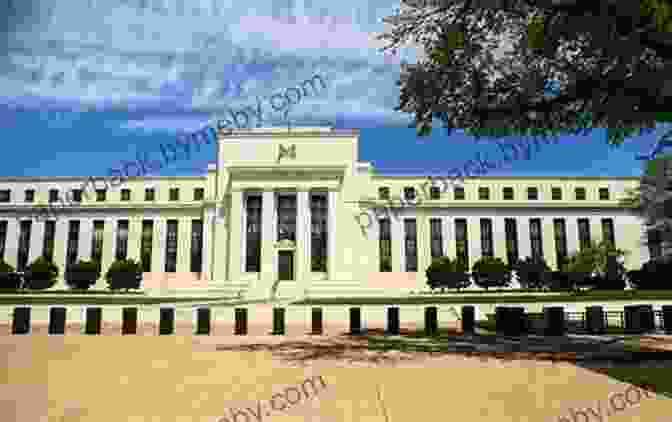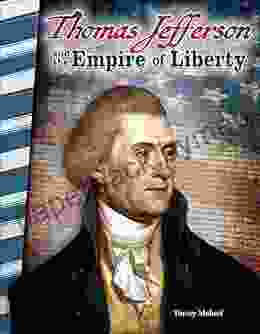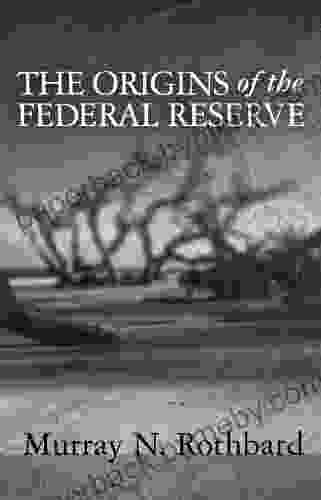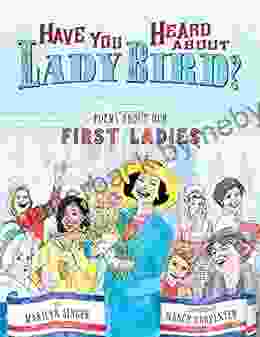Unveiling the Secrets of the Federal Reserve: Uncovering the Origins and Impact on American History

Delving into the Genesis of the Federal Reserve
In the tapestry of American history, the establishment of the Federal Reserve stands as a pivotal event that has profoundly shaped the nation's financial landscape. This enigmatic institution, responsible for regulating the monetary system and influencing economic policy, has its roots in the complexities of the early 20th century. To fully grasp the significance of the Federal Reserve, we must embark on a journey into its formative years, tracing the threads that led to its creation.
4.6 out of 5
| Language | : | English |
| File size | : | 349 KB |
| Text-to-Speech | : | Enabled |
| Screen Reader | : | Supported |
| Enhanced typesetting | : | Enabled |
| Word Wise | : | Enabled |
| Print length | : | 122 pages |
| Lending | : | Enabled |

The Seeds of a Central Bank
Prior to the establishment of the Federal Reserve, the American financial system faced significant challenges. The country lacked a central bank, a cornerstone of many developed economies, resulting in a fragmented and unstable monetary system. This disarray often led to financial panics and economic downturns. Recognizing the need for a more robust and centralized financial system, prominent bankers, economists, and politicians began advocating for the creation of a national bank.
The catalyst for the Federal Reserve's creation emerged from the Panic of 1907, a severe financial crisis that shook the nation's trust in the existing banking structure. The crisis exposed the vulnerabilities of the decentralized system, highlighting the urgent need for a lender of last resort and a regulator of the money supply.
The Birth of the Federal Reserve Act
In the aftermath of the Panic of 1907, a National Monetary Commission was formed to study the issue of financial reform. After extensive deliberations, the commission recommended the establishment of a central bank. This proposal culminated in the drafting of the Federal Reserve Act, which was passed by Congress and signed into law by President Woodrow Wilson on December 23, 1913.
The Federal Reserve Act created a decentralized system of 12 regional Federal Reserve Banks, each serving a specific geographic area of the country. These banks would be responsible for managing the money supply, setting interest rates, and regulating member banks within their districts. The Federal Reserve System was born, tasked with ensuring the stability and soundness of the nation's financial system.
The Federal Reserve's Unfolding Legacy
Since its inception, the Federal Reserve has played a pivotal role in shaping American economic history. Its decisions have influenced everything from inflation rates to economic growth, leaving an enduring mark on the nation's financial well-being.
Monetary Policy and Economic Stability
One of the Federal Reserve's primary responsibilities is to conduct monetary policy, which involves managing the money supply and interest rates. By adjusting these levers, the Fed can influence economic activity, aiming to achieve price stability, maximum employment, and sustainable economic growth.
The Fed's actions have been particularly crucial during periods of economic stress. During the Great Depression, for instance, the Fed's expansionary monetary policy helped spur economic recovery. Similarly, during the 2008 financial crisis, the Fed's aggressive actions prevented a deeper recession.
Regulation and Banking Supervision
Beyond monetary policy, the Federal Reserve also serves as a regulatory body for the banking industry. It sets reserve requirements for banks, examines their financial health, and enforces regulations designed to protect consumers and the financial system.
The Fed's regulatory role has become increasingly important in recent decades, as the financial industry has grown more complex and interconnected. The Fed's efforts have helped maintain the stability of the banking system and reduce the risk of systemic crises.
The Eternal Debate: Independence and Accountability
The Federal Reserve's unique position as an independent institution has been a subject of ongoing debate. While its independence allows the Fed to make decisions free from political interference, some argue that it also reduces its accountability to the public.
Over the years, the Fed has faced criticism for its handling of monetary policy and its regulatory oversight. Some argue that the Fed's actions have contributed to economic inequality, while others contend that it has not done enough to prevent financial crises.
Despite these criticisms, the Fed remains a vital institution in the American economy. Its ability to set monetary policy and regulate the banking system gives it a significant influence over the nation's financial well-being. Striking the right balance between independence and accountability remains a constant challenge for the Fed.
A Complex and Enduring Legacy
The Federal Reserve is a multifaceted institution with a complex and enduring legacy. Its creation was a pivotal moment in American history, and its decisions have had a profound impact on the nation's financial system and economic development.
As the world continues to evolve and the financial landscape transforms, the Federal Reserve will undoubtedly face new challenges and opportunities. Its ability to adapt and innovate will be crucial to ensuring the stability and prosperity of the American economy for generations to come.
4.6 out of 5
| Language | : | English |
| File size | : | 349 KB |
| Text-to-Speech | : | Enabled |
| Screen Reader | : | Supported |
| Enhanced typesetting | : | Enabled |
| Word Wise | : | Enabled |
| Print length | : | 122 pages |
| Lending | : | Enabled |
Do you want to contribute by writing guest posts on this blog?
Please contact us and send us a resume of previous articles that you have written.
 Book
Book Novel
Novel Page
Page Chapter
Chapter Text
Text Story
Story Genre
Genre Reader
Reader Library
Library Paperback
Paperback E-book
E-book Magazine
Magazine Newspaper
Newspaper Paragraph
Paragraph Sentence
Sentence Bookmark
Bookmark Shelf
Shelf Glossary
Glossary Bibliography
Bibliography Foreword
Foreword Preface
Preface Synopsis
Synopsis Annotation
Annotation Footnote
Footnote Manuscript
Manuscript Scroll
Scroll Codex
Codex Tome
Tome Bestseller
Bestseller Classics
Classics Library card
Library card Narrative
Narrative Biography
Biography Autobiography
Autobiography Memoir
Memoir Reference
Reference Encyclopedia
Encyclopedia Shay Spivey
Shay Spivey Ken Hyland
Ken Hyland Kimberly Nix Berens Phd
Kimberly Nix Berens Phd Loriann Oberlin
Loriann Oberlin Michael Blank
Michael Blank Kimberlee Slavik
Kimberlee Slavik Roy Popson
Roy Popson Mary Pilon
Mary Pilon Kenneth T Walsh
Kenneth T Walsh Neil Perkin
Neil Perkin May Joseph
May Joseph Kimberly Seals Allers
Kimberly Seals Allers Martina Mars
Martina Mars Kevin Richardson
Kevin Richardson Ken Wlaschin
Ken Wlaschin Lori Zimmer
Lori Zimmer Sam Watkins
Sam Watkins United States Government Us Army
United States Government Us Army Scott S Powell
Scott S Powell Ken Horlor
Ken Horlor
Light bulbAdvertise smarter! Our strategic ad space ensures maximum exposure. Reserve your spot today!

 David Foster WallaceStep into the Bullet-Riddled World of "In The Crossfire: Adventures of a...
David Foster WallaceStep into the Bullet-Riddled World of "In The Crossfire: Adventures of a... Donovan CarterFollow ·8.4k
Donovan CarterFollow ·8.4k Evan HayesFollow ·16.1k
Evan HayesFollow ·16.1k Eli BrooksFollow ·4.2k
Eli BrooksFollow ·4.2k Jerome PowellFollow ·3.8k
Jerome PowellFollow ·3.8k Curtis StewartFollow ·18.8k
Curtis StewartFollow ·18.8k Craig CarterFollow ·14.6k
Craig CarterFollow ·14.6k Guy PowellFollow ·17.2k
Guy PowellFollow ·17.2k Brennan BlairFollow ·9k
Brennan BlairFollow ·9k

 Isaac Asimov
Isaac AsimovEmbark on an Epic Adventure: The Colorado Trail 9th...
Unveiling the Treasures of the Colorado...

 Clinton Reed
Clinton ReedUltimate Football Heroes: Uncover the Gridiron Greatness...
Enter the World...

 Ibrahim Blair
Ibrahim BlairUnveiling the Secrets of Stolen Focus: A Journey to...
In today's relentless digital...

 Colt Simmons
Colt SimmonsRediscover the Founding Father's Vision: Thomas Jefferson...
Immerse Yourself in the Unedited Words of...

 Juan Butler
Juan ButlerExcel in Language Learning: The Ultimate Self-Study...
Unlock Your Language Potential with Our...
4.6 out of 5
| Language | : | English |
| File size | : | 349 KB |
| Text-to-Speech | : | Enabled |
| Screen Reader | : | Supported |
| Enhanced typesetting | : | Enabled |
| Word Wise | : | Enabled |
| Print length | : | 122 pages |
| Lending | : | Enabled |












